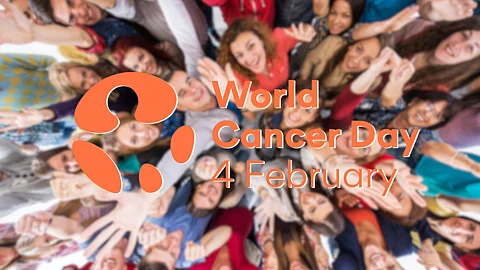
- Home
- About Us
- SOULIVITY TODAY Radio Show!
- COMMUNITY HUB
- GO SHOP by Soulivity!
- ColumnsColumns
- CultureCulture
- Lifestyle
- Contact Us!

Every year on February 4, the world unites to observe World Cancer Day, a day dedicated to raising awareness about cancer prevention, detection, and treatment. Established in 2000 by the Union for International Cancer Control (UICC), this global initiative strives to reduce cancer-related illnesses and deaths.
Cancer continues to be one of the leading causes of death worldwide. According to the World Health Organization (WHO):
An estimated 10 million people succumb to cancer annually.
Approximately 20 million new cases were diagnosed in 2024 alone.
The most prevalent cancers remain lung, breast, colorectal, and prostate cancer.
70% of cancer deaths occur in low- and middle-income countries due to limited access to early detection and treatment.
Lifestyle factors such as smoking, alcohol consumption, obesity, and poor diet contribute to over 40% of cancer cases.
Medical advancements are transforming cancer treatment, offering hope to millions. Here are some of the most promising developments:
Immunotherapy continues to show remarkable progress, with new checkpoint inhibitors and CAR-T cell therapies targeting aggressive cancers, including lung, melanoma, and blood cancers.
Artificial intelligence (AI) is playing a crucial role in cancer screening, particularly in breast and lung cancer, improving early diagnosis rates and reducing false positives.
Precision oncology enables doctors to tailor treatments based on a patient's genetic profile. Innovations like liquid biopsies allow non-invasive detection of cancer-related DNA mutations.
Following the success of mRNA vaccines in COVID-19, researchers are now applying this technology to develop therapeutic cancer vaccines, particularly for melanoma and pancreatic cancer.
New radiotherapy techniques such as proton beam therapy and robotic-assisted surgery are reducing side effects and improving survival rates.
Prevention remains a key strategy in reducing cancer risk. The WHO emphasizes that up to 50% of cancers are preventable through:
Regular screenings for early detection (e.g., mammograms, colonoscopies, HPV testing)
Lifestyle modifications (healthy diet, regular exercise, quitting smoking)
Vaccinations against HPV and Hepatitis B, which can prevent cervical and liver cancers
On this World Cancer Day, individuals, organizations, and governments worldwide are encouraged to participate by:
Spreading awareness through social media using hashtags like #WorldCancerDay and #CloseTheCareGap.
Supporting cancer research organizations through donations and volunteering.
Advocating for better healthcare policies to ensure access to cancer treatment for all.
As the world marks World Cancer Day 2025, we must continue pushing for advancements in cancer research, treatment, and prevention. With increased awareness, innovative therapies, and global collaboration, we can create a future where cancer is no longer a life-threatening disease.
Together, we can close the care gap and bring hope to millions.
